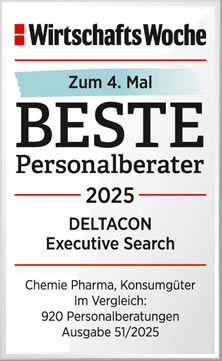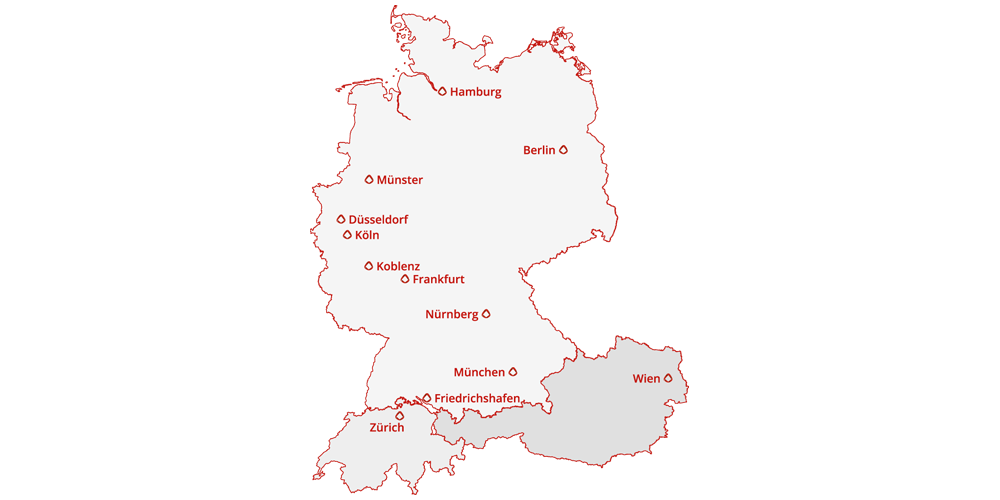Data – the New Gold Nuggets
How Life Sciences Companies are Shaping the Future through Data-Driven Strategies and Artificial Intelligence
A new era is unfolding in the life sciences industry – powered by the force of data and intelligent systems. What once seemed like a futuristic vision has become today’s reality: data and artificial intelligence (AI) are no longer just operational tools – they are strategic assets. For pharma companies, this marks a fundamental transformation across the entire value chain. And for candidates with AI and data literacy, this creates new career paths – often at the intersection of science, technology, and strategic business impact.

1. Data-Driven Decision Making – Precision over Intuition
Data volumes in the pharma industry are exploding: clinical trial data, real-world evidence, genomic information, patient journeys, market and competitor data – all of this can now be analyzed in real time using modern analytics and AI platforms.
Competitive edge:
Companies that operate based on data make faster, more accurate decisions – whether in portfolio optimization, go-to-market strategies, or indication selection.
Career opportunity:
Data Scientists, AI Product Owners, or Commercial Analytics Managers with domain knowledge and regulatory awareness are in high demand – particularly in cross-functional roles with strategic influence.
2. Personalized Medicine – From Blockbusters to N-of-1 Therapies
Data-based insights from genomics, metabolomics, and patient databases are enabling the development of highly individualized treatments. AI identifies patterns in complex biological systems, pinpoints biomarkers, and predicts treatment outcomes.
Therapeutic revolution:
Instead of treating many with the same drug, we are now optimizing for the individual. This transforms not only R&D but also the commercial models of many companies.
Career opportunity:
Biostatisticians, Precision Medicine Experts, and AI-supported Drug Discovery Specialists are gaining prominence – especially those who can navigate between bioinformatics and clinical development.
3. Clinical Trial Efficiency – AI Meets Trial Design
Traditional clinical trial processes are often seen as costly, slow, and inefficient. AI-enabled models support:
- Predictive analytics for patient recruitment
- Real-time monitoring of trial progress
- Automated data analysis and risk prediction
Impact:
Study timelines are shortened, time-to-market decreases, and budgets are used more efficiently.
Career opportunity:
Roles such as Clinical Trial Data Engineers, Digital Trial Architects, and AI Compliance Coordinators are emerging – particularly within research-driven biotech companies.
4. Regulatory Challenges – Data Responsibility as a Leadership Issue
As data volumes surge, so do regulatory requirements. Data protection (e.g., GDPR, HIPAA), data sovereignty, and ethical standards are under the spotlight. Companies must achieve not only technical but also organizational and legal excellence in managing sensitive health data.
Best practice:
Leading companies form interdisciplinary teams from regulatory affairs, data governance, and legal to implement AI projects in full compliance.
Career opportunity:
New roles such as “AI Compliance Lead” or “Chief Data Steward” are emerging – ideal for professionals who combine regulatory expertise with technological insight.
5. Future Outlook – Pharma + AI = A New Leadership Paradigm
The convergence of pharma and AI isn’t a trend – it’s a structural transformation. Future developments include:
- Digital twins of patients that simulate clinical scenarios virtually
- Generative AI in molecular design
- Integrated decision support platforms in real time
What this means: Life sciences companies must increasingly think like tech companies – agile, data-driven, interconnected.
Career opportunity: The new leadership profile combines scientific excellence with strategic data thinking. Candidates who master both worlds will drive transformation – from AI-savvy Medical Directors to visionary Chief Innovation Officers.
6. What This Means for Executive Search – A New Era of Talent Acquisition
As the life sciences and AI domains increasingly converge, executive search faces a clear mandate: it must evolve.
The complexity of leadership roles at this intersection demands a new level of expertise from search partners. It’s no longer sufficient to understand just biotech or pharma – today’s C-level and senior hires often require deep familiarity with data ecosystems, AI-driven technologies, and regulatory landscapes simultaneously.
New candidate profiles:
- Chief Digital Officers who understand clinical data pipelines
- Medical Affairs leaders with AI-literacy to evaluate algorithm-driven evidence
- R&D executives who can lead hybrid teams of scientists and machine learning engineers
Implications for Executive Search:
- Search consultants must develop dual-sector fluency: in both life sciences and AI
- Assessing candidates requires understanding not just traditional experience but also adaptability, digital mindset, and cross-domain collaboration skills
- Confidentiality, trust, and precision in matching become even more critical in an environment where innovation is tied to proprietary data and emerging technologies
Bottom line:
Executive Search must operate at a new level of strategic advisory. It’s no longer about finding candidates within the industry – it’s about identifying future leaders between industries.
Final Takeaway
The fusion of data and life sciences is changing the industry – and with it, the talent landscape. For executive search firms and headhunters, this is a call to action: deepen your sector knowledge, rethink your assessment frameworks, and become true navigators in this new era of transformation.
In the future of pharma, the winners won’t just be data-driven – they’ll be talent-driven.
Von Thomas Heeger
Personalberater für Pharmaindustrie, Medizintechnik und Diagnostik
Thomas Heeger ist Gründungspartner von DELTACON und Managing Partner von DELTACON an unserem Standort in der Schweiz in Zürich. Sein Competence-Center umfasst den Life Science Bereich mit den Branchen Pharmaindustrie, Medizintechnik und Diagnostik. Als „Brachen-Insider“ mit mehr als 20 Jahren Management- und Leadership-Erfahrung in führenden Unternehmen kennt er das Business in internationalen Konzernen, deren Filialen, aber auch die Bedürfnisse und Thematik in innovativen Life Science Start-ups.






